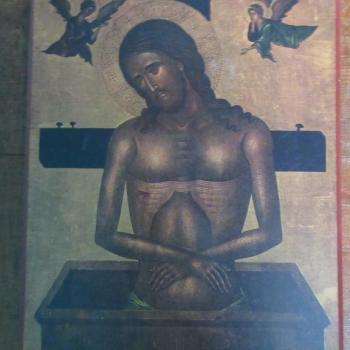They’re attacking the Pope. That is what many Catholics are saying right now.
It’s not about the Pope, it’s about the children who were abused. That is what many other Catholics are saying right now.
Both of these can, in their own way, be true. It is quite possible that many of the discussions about clergy sexual abuse, and the mismanagement of priests who have been found guilty of abuse, are being used to attack the Pope. However, let’s not use that to distance ourselves from the questions which have been raised, and the significant issues which need to be addressed. In making it all an attack on the Pope, the attacks on the children are ignored. In making all the discussion centered on how the Pope is being attacked, one can then attack the messenger and ignore the message.
There are many reasons why the Pope is the center of the discussion, and it doesn’t have to be because he is Pope. Indeed, it seems accidental that he is Pope at this point. The issues and concerns were when he was not the Pope, but the head of the CDF. That he happened to become Pope afterward should not be used as a way to distract us from the questions which have been raised about the way the Church has dealt with, and continues to deal with, sexual abuse.
The problem is that the ecclesial structure as it has developed over the last few centuries has cracked, and it is breaking apart. A new structure needs to emerge, one which can deal with the problems of the modern age, not the age of Trent.
Bishops are supposed to possess authority by the fact they are the successors of the Apostles, but the ecclesial system has, through the centralization of the papacy, made it nearly impossible for them to act — they have to bow to the curia. In this way, the bishops can say they have no responsibility beyond putting forward their case to the curia, hoping the curia will back them up in their actions. On the other hand, because the curia is so far away from the bishops, and has so many responsibilities of its own, it is quite clear they will never be able to deal adequately to the needs of the bishops. They require obedience and patience as their own concerns tend to be the ones which get their attention, and only after these concerns are done, can other concerns be brought up. This is exactly what is at stake and the issue.
What many people feel has been shown is that as the head of the CDF, Cardinal Ratzinger was interested in matters of theology, leading him to fail in matters of policing abuse within the Church. This is not to say he did nothing. Pointing out times he did something does not deal with the issue, just as a sinner cannot tell God about the times they didn’t sin as a way to validate themselves. If we are honest, we will be able to notice that there was a vast difference in his work with theologians and dissent than with other kinds of abuse in the Church. To point this out is not an attack. Theologically, I myself like much of Pope Benedict’s work. But he was put into power in a dysfunctional system, and now we are seeing how dysfunctional it was. Until it is changed, however, we will be able to see the blame game being played out today continue to be played out in the future, where some people will point at bishops, and the bishops will point at the Vatican, with no one being seen as holding any responsibility to the mistakes of the past.
This is the crisis that centralization and ultramontanist theology has created for us. And it seems this is why the focus is on the Pope as if the Pope is being attacked. Indeed, many people ask me how I can question Pope Benedict, because he is, after all, the Pope and “the leader of the Church guided by the Holy Spirit.” While I can understand why I should have to explain this to Protestants, it saddens me to see Catholics fall for this line of reasoning. The Pope is not impeccable. His opinions and prudential judgments are not infallible. He can, and does make mistakes. Some of those mistakes can be quite significant and need to be criticized. Popes can, and do sin, sometimes greatly. The office is important, but let’s not create a false understanding of the office as if it changes the person into a saint. When we do, we just create the means by which people will lose their faith.











